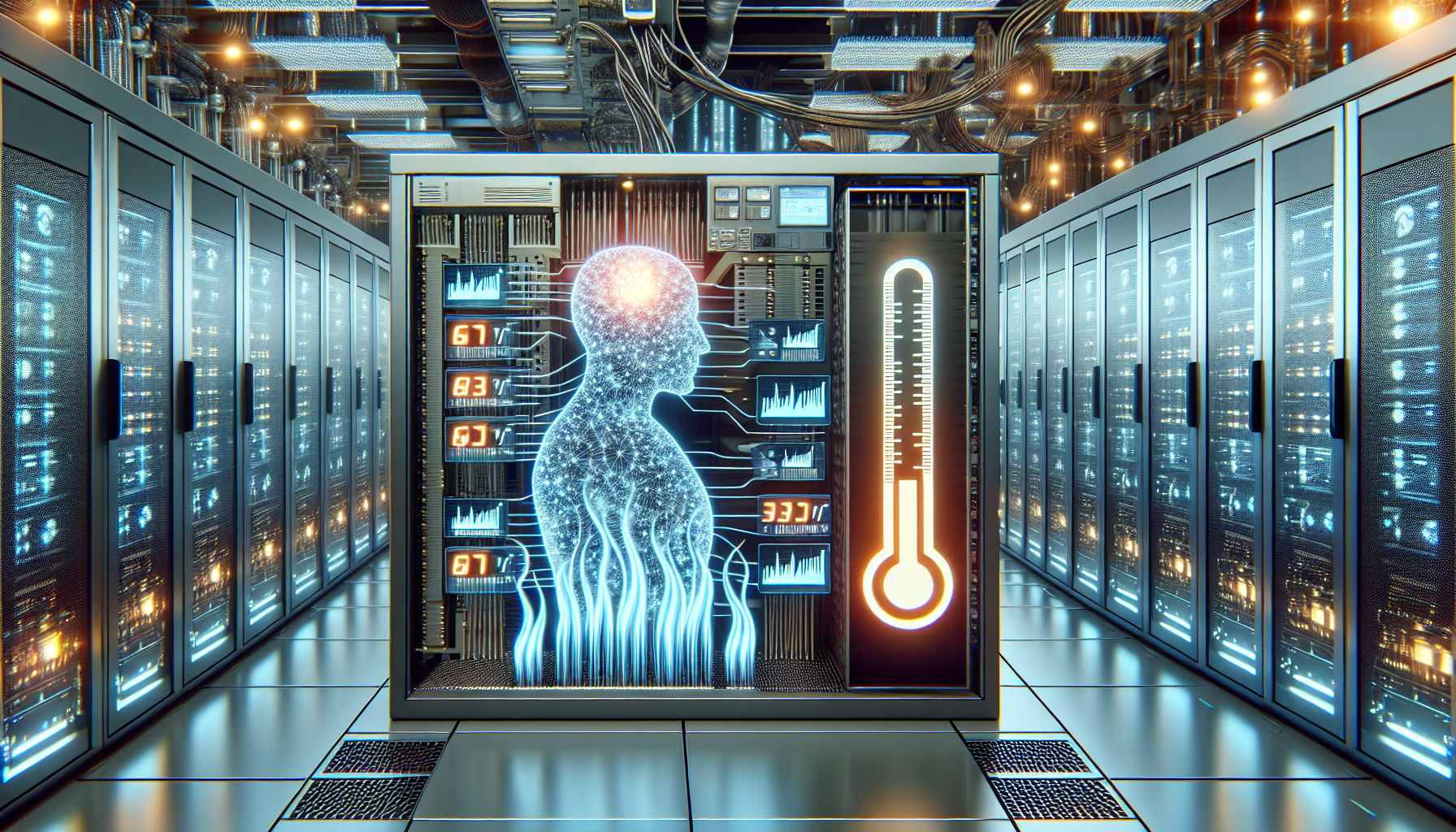Nvidia’s Latest AI Processors Experiencing Overheating Issues in Data Centres
We independently review everything we recommend. When you buy through our links, we may earn a commission which is paid directly to our Australia-based writers, editors, and support staff. Thank you for your support!

Nvidia’s Blackwell AI Chips Experiencing Heating Problems in Data Centres
Quick Read:
- Nvidia’s latest Blackwell AI chips are experiencing overheating issues in data centres, leading to worries among clients.
- Server racks meant to accommodate up to 72 Blackwell chips are encountering overheating challenges.
- Nvidia has requested its suppliers to rework the server rack designs numerous times to tackle this issue.
- The heating problem has resulted in delays, impacting major tech firms such as Meta, Google, and Microsoft.
- Blackwell chips are engineered for advanced AI operations and are claimed to be 30 times quicker than earlier versions.
Heating Issues with Nvidia’s Blackwell AI Chips

Nvidia’s Blackwell AI chips, anticipated to revolutionize the artificial intelligence (AI) landscape, are currently facing substantial technical difficulties. After initial delays, the chips are now grappling with overheating when used within server racks designed to hold up to 72 units. These heating issues have sparked concern among significant clients and cloud service providers aiming to incorporate these high-performance chips into their data centres.
This matter has gained considerable attention in the tech sector, as firms like Meta, Google, and Microsoft are relying on these chips to fuel their AI-oriented services. Nonetheless, the overheating has postponed rollouts and compelled Nvidia to reconsider its hardware configurations.
Server Racks Unable to Manage Heat
The heating concerns emerge when numerous Blackwell chips are linked within large server racks, intended to support up to 72 chips at once. As per sources knowledgeable about the situation, Nvidia has urged its suppliers to overhaul these racks several times, but a lasting fix remains elusive.
This poses a significant challenge for clients who are already facing tight timelines to establish new data centres, as they rely on these chips for extensive AI applications. The delays and technical obstacles have left some clients questioning their ability to adhere to their own schedules.
Nvidia’s Approach to the Heating Challenge
A representative from Nvidia acknowledged the complexities but stressed that these engineering revisions are a standard part of launching a product of this scale. Nvidia indicated that they are collaborating closely with prominent cloud service providers to resolve the overheating challenges and guarantee optimal chip performance upon deployment.
Despite these reassurances, the situation has already prompted concern among Nvidia’s clientele, as the delays could potentially disrupt their AI-driven initiatives. Nvidia has yet to provide a definitive timeline for the complete resolution of the heating issues.
Shipping Delays Affecting Major Tech Companies
Nvidia first introduced the Blackwell chips in March, promoting them as a significant advancement in AI processing capabilities. The company initially aimed to ship these chips by the second quarter of this year. However, challenges related to overheating, along with numerous needed hardware reforms, have delayed these shipments.
The postponements are particularly troubling for major tech firms like Meta Platforms, Alphabet’s Google, and Microsoft, all of whom depend on the Blackwell chips to improve their AI functionalities. These companies have already made substantial investments in AI-driven services, and any disruption in their supply chain could carry serious repercussions.
Features of Blackwell Chips
Nvidia’s Blackwell chip is engineered to excel in AI processing tasks. It effectively merges two squares of silicon, each comparable to Nvidia’s prior offerings, into a singular, cohesive unit. This integration enables the Blackwell chip to execute functions such as generating chatbot responses up to 30 times quicker than its predecessors.
These performance advancements are vital for companies seeking to expand their AI capabilities, particularly in fields such as natural language processing, image recognition, and machine learning models. The rapid processing abilities of the Blackwell chip aim to provide Nvidia with a competitive edge in the increasingly crowded AI chip sector, facing rivals like AMD and Intel.
Conclusion
Nvidia’s Blackwell AI chips, originally hailed as a groundbreaking innovation within the artificial intelligence domain, are now dealing with considerable overheating problems when utilized in server racks. This heating issue has delayed shipments and raised alarms among major tech entities like Meta, Google, and Microsoft, who depend on these chips for their AI functionalities. Although there have been several redesigns of server racks, the overheating problem continues, leaving the timeline for a permanent resolution uncertain. Nvidia is working closely with cloud service providers to rectify the situation, but time is critical for clients who are already under pressure to launch their AI infrastructures.
FAQs
Q: What is causing the overheating of Nvidia’s Blackwell AI chips?
A:
The overheating occurs when multiple Blackwell chips are connected in server racks designed to accommodate up to 72 units. The significant processing power of these chips produces considerable heat, and the existing server rack designs are struggling to adequately dissipate it.
Q: What steps is Nvidia taking to address the overheating issue?
A:
Nvidia is collaborating with its suppliers to redesign the server racks multiple times in an effort to enhance heat dissipation. The company is also actively working with cloud service providers to seek a long-term solution.
Q: Will the overheating problem delay the rollout of Blackwell chips?
A:
Yes, the heating issues have already postponed the shipment of Blackwell chips, which were originally anticipated to be available by the second quarter of this year. This delay is affecting major tech firms that are counting on these chips for their AI operations.
Q: What distinguishes the Blackwell chip?
A:
Nvidia’s Blackwell chip integrates two squares of silicon, significantly increasing its speed compared to prior models. It is designed for high-performance AI tasks, including natural language processing and machine learning, achieving speeds up to 30 times faster than previous Nvidia chips.
Q: Who are the main clients affected by the shipment delays?
A:
Major tech companies such as Meta Platforms, Alphabet’s Google, and Microsoft are the primary customers impacted. These firms need Nvidia’s AI chips to power their AI-driven services, and delays could disrupt their operational timelines.
Q: Is there a timeline for when the heating issue will be resolved?
A:
Nvidia has not specified a detailed timeline for resolving the heating challenges. However, the company is actively pursuing engineering solutions and collaborating with cloud service providers to accelerate the resolution process.
Q: Could this issue affect Nvidia’s standing in the AI chip market?
A:
While Nvidia continues to be a leading player, the delays and technical challenges may provide opportunities for competitors like AMD and Intel to gain market share. However, if Nvidia swiftly addresses the issue, its reputation could potentially remain largely unscathed.
